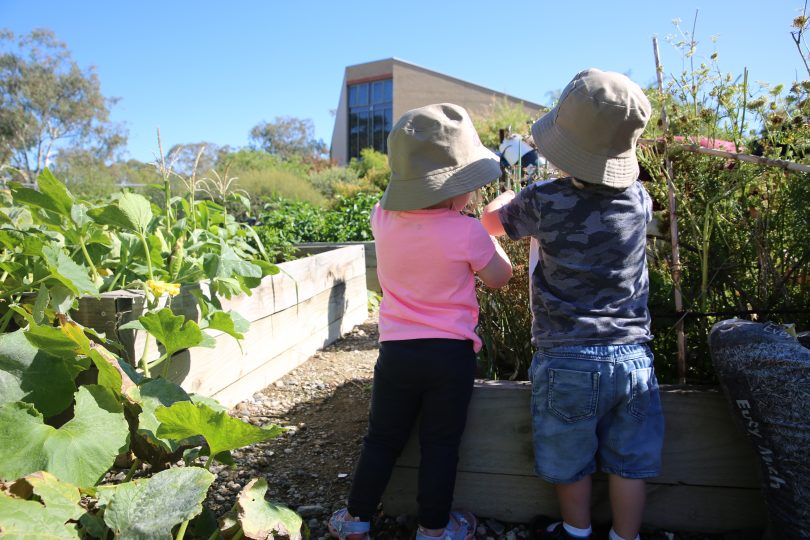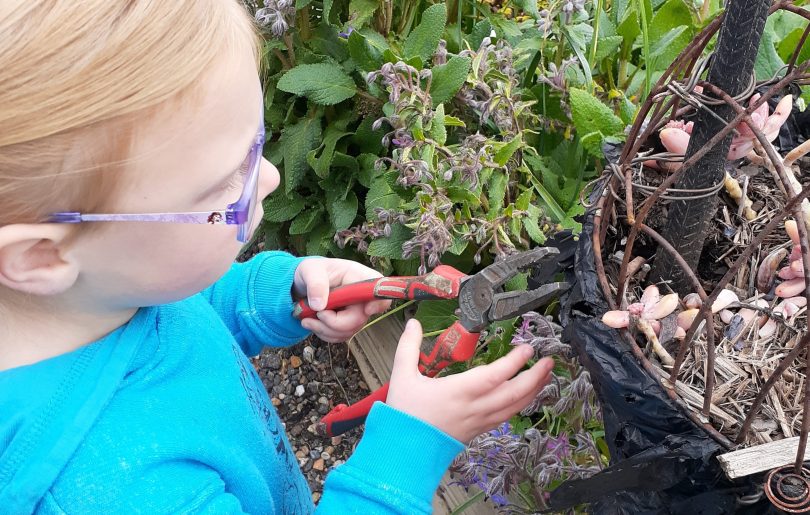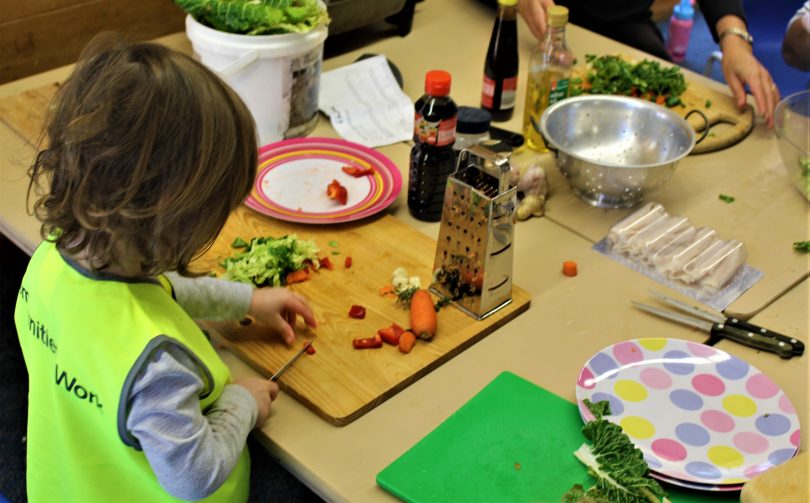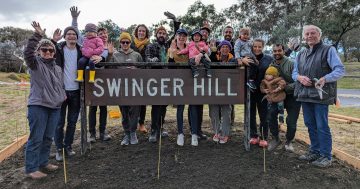
Communities@Work’s Kitchen Garden Playgroup has been running in Tuggeranong for more than four years. Photo: Supplied.
Every Friday morning, young children excitedly meet at Erindale Neighbourhood Garden in Wanniassa. It’s kitchen garden time, which means time to be outdoors with water, dirt and edible plants.
Communities@Work’s support coordinator, Linda White, talks about their popular kitchen garden playgroup and the many educational, physical and social benefits it provides.
“Communities@Work’s Kitchen Garden Playgroup has been running in the Tuggeranong region for more than four years,” she says. “The idea for the group came from the children after I took scraps from morning tea to feed my chickens. The children became curious about food and where it comes from.
“We decided this would be a fantastic opportunity to instill an appreciation of food and to develop healthy food habits. So we established a plot at Erindale Neighbourhood Garden.”
The Kitchen Garden Playgroup is one of five weekly playgroups run by Communities@Work during term times for its Family Day Care and In-Home Services educators and the children they care for. Each group has a different interest base and enables vital skill development while providing important socialisation opportunities for both educators and children.
Linda says that over time, the garden became a piece of the children’s world and gave them a sense of belonging to their community.
On Tuesdays, playgroups focus on STEM learning and community connection. Wednesdays are a focus on outdoor nature engagement and connection to land. Thursdays are music therapy, and Fridays are kitchen gardening.

Community gardens are wonderful spaces for rich learning experiences. Photo: Supplied.
“In planning the project, we realised it aligned perfectly with our philosophy of acknowledging and advocating for the land we walk on, its history and culture,” says Linda.
In the garden, the season determines what the children plant and work on.
“During winter, we might plant greens, beetroots, carrots, cauliflower, strawberries and chives, while in summer we’ll grow tomatoes, capsicums, cucumbers, pumpkins and snow peas,” says Linda.
The playgroup chooses a healthy recipe based on what seasonal vegetables and herbs the children have grown. They then collect the ingredients in their baskets and take these home to prepare a meal with their families.
The garden also provides an exciting opportunity for children to engage in the life cycle of plants and insects as the seasons change. The children have built their own insect hotels, worm farm and bush tucker garden. As their interest has grown, their thoughts and ideas have added a new design and creativity aspect to the garden. Building scarecrows, weaving frames and recycled garden sculptures are some of the ideas the children have brought to the garden.
“We also love celebrating the cultural diversity of our group through our recipes, and we even make different hand scrubs, which promote hygiene and encourage the children to look after themselves in different ways,” says Linda.

Children learn to make their own morning teas from the produce they grow and collect. Photo: Supplied.
Each week, the children see the changes in their garden, care for the plants and then cook their own meals at their educator’s home. Parents have also reported that the program has encouraged their children to try healthy food options at home.
“The learning in this process is endless,” says Linda. “It enhances curiosity, promotes a sense of wellbeing and belonging in a group, and teaches inclusiveness and teamwork. It also gives the children greater respect for the environment and shared spaces, and a better understanding of where food comes from.
“They also get excited about being outside and away from technology, using real garden tools to build and develop their garden. There’s no digital substitute for feeling dirt under their fingers and having tools in their hands.
“Given the huge success of the program, the goal during the next 12 months is to build our knowledge of biodiversity, entomology and garden design.
“The children have already identified new ideas for their garden design and how this could attract insects to their garden to help their plants grow.”
For more information, visit Communities@Work’s website.













